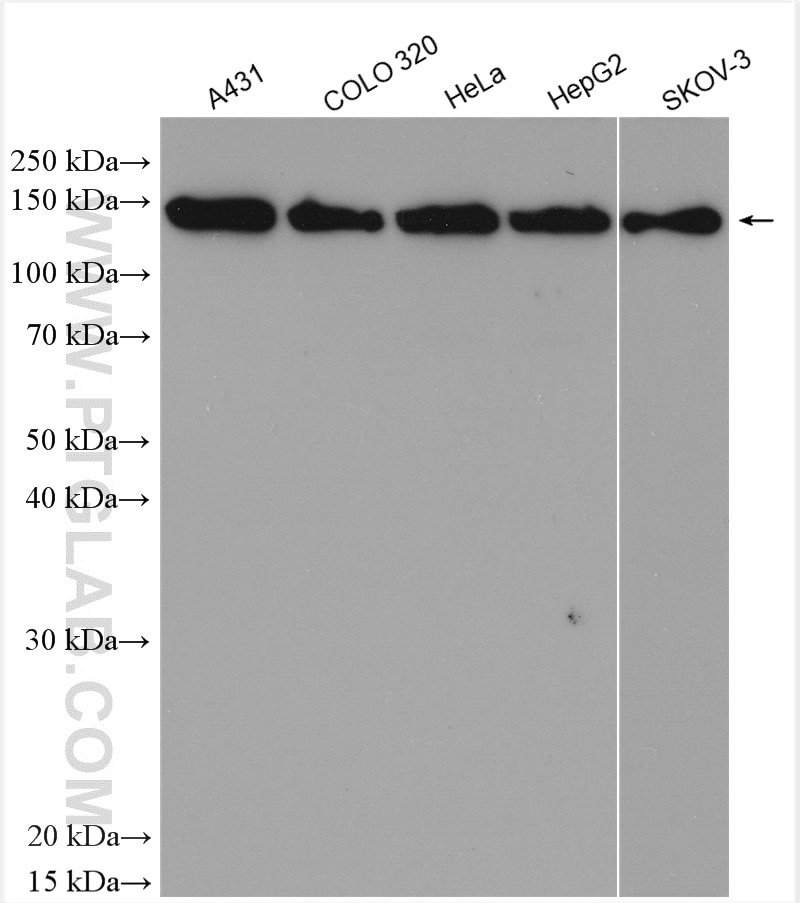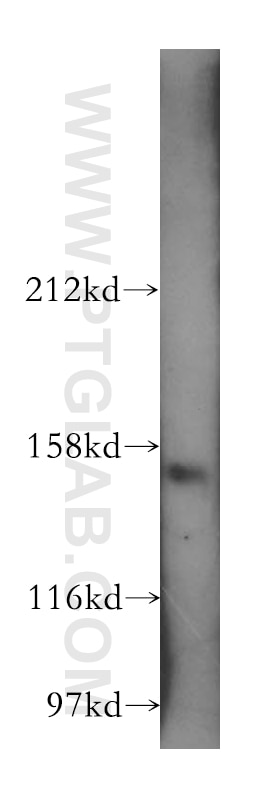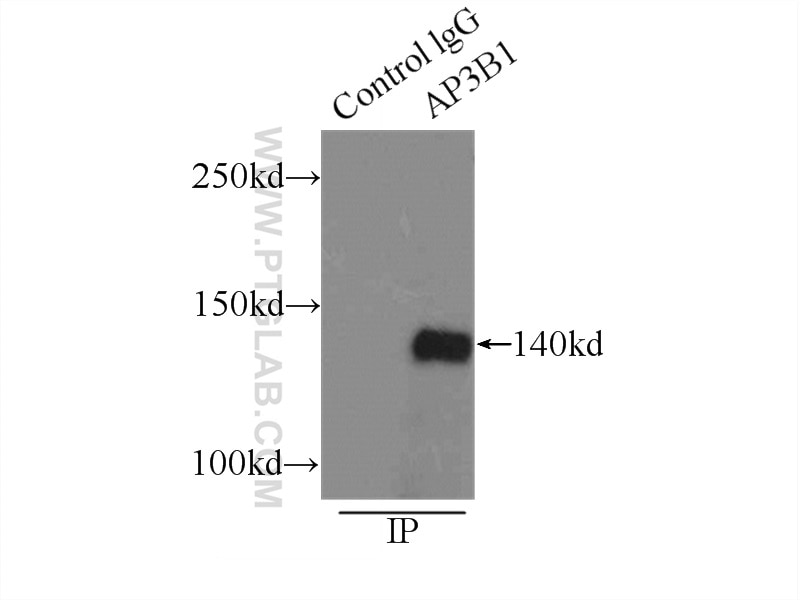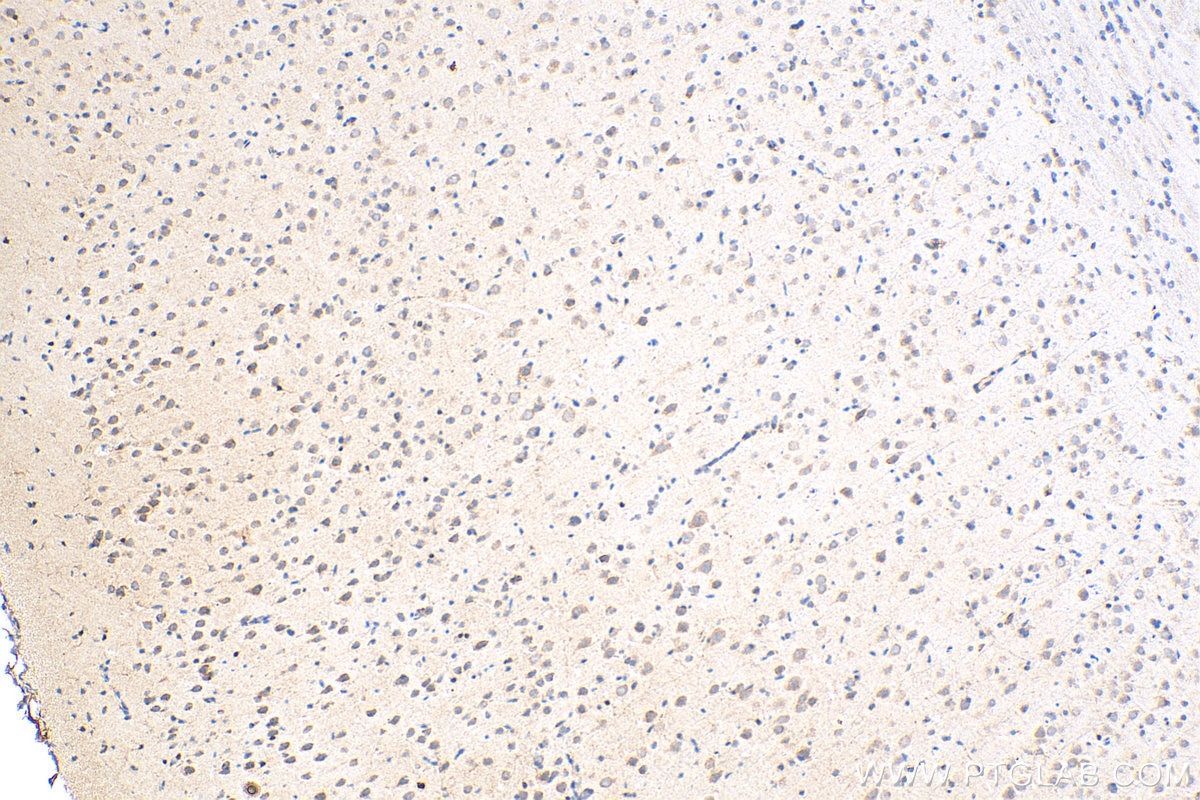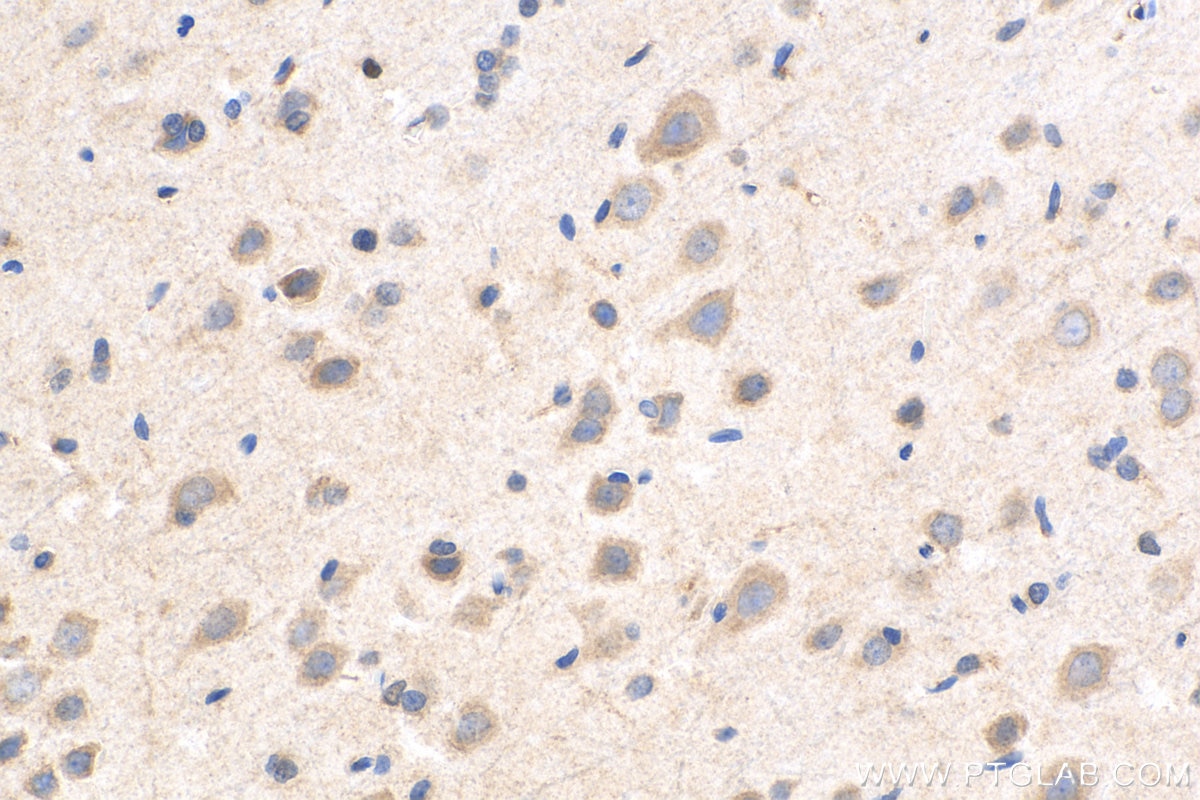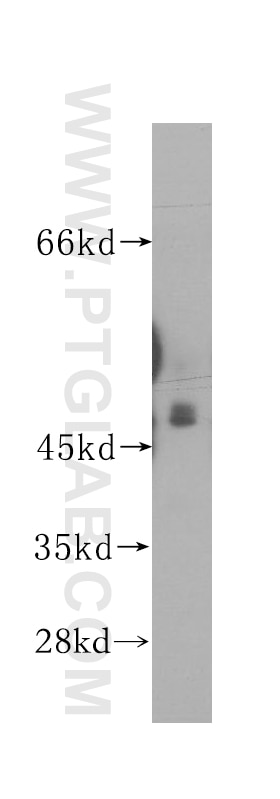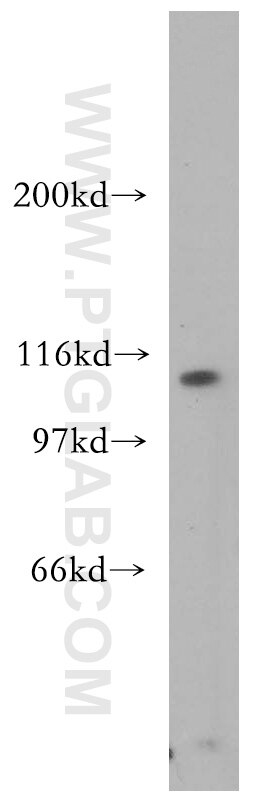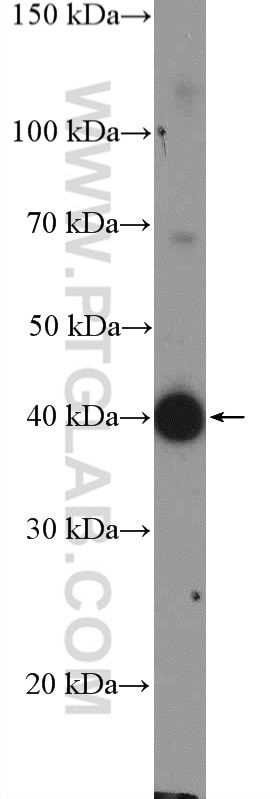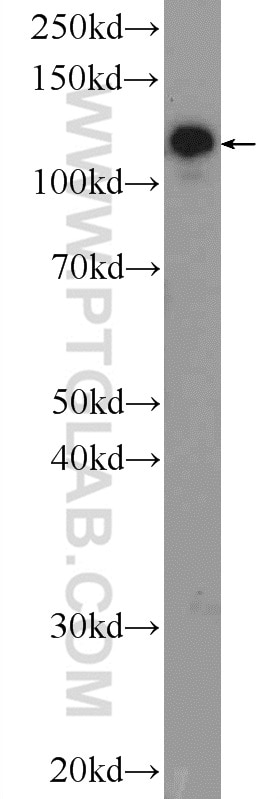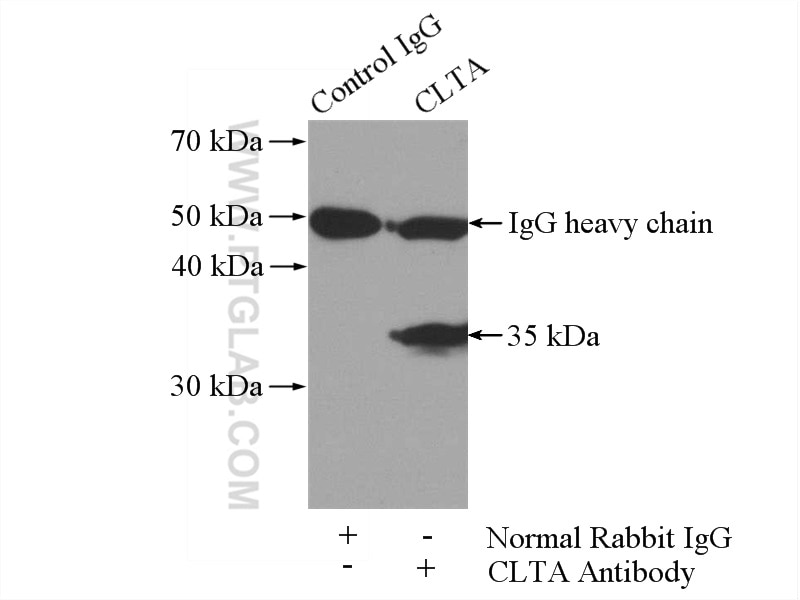- Phare
- Validé par KD/KO
Anticorps Polyclonal de lapin anti-AP3B1
AP3B1 Polyclonal Antibody for WB, IP, IHC, ELISA
Hôte / Isotype
Lapin / IgG
Réactivité testée
Humain, rat, souris
Applications
WB, IP, IF, IHC, ELISA
Conjugaison
Non conjugué
N° de cat : 13384-1-AP
Synonymes
Galerie de données de validation
Applications testées
| Résultats positifs en WB | cellules A431, cellules COLO 320, cellules HeLa, cellules HepG2, cellules SKOV-3, tissu de thymus de souris |
| Résultats positifs en IP | cellules COLO 320 |
| Résultats positifs en IHC | tissu cérébral de rat, il est suggéré de démasquer l'antigène avec un tampon de TE buffer pH 9.0; (*) À défaut, 'le démasquage de l'antigène peut être 'effectué avec un tampon citrate pH 6,0. |
Dilution recommandée
| Application | Dilution |
|---|---|
| Western Blot (WB) | WB : 1:500-1:3000 |
| Immunoprécipitation (IP) | IP : 0.5-4.0 ug for 1.0-3.0 mg of total protein lysate |
| Immunohistochimie (IHC) | IHC : 1:50-1:500 |
| It is recommended that this reagent should be titrated in each testing system to obtain optimal results. | |
| Sample-dependent, check data in validation data gallery | |
Applications publiées
| KD/KO | See 3 publications below |
| WB | See 15 publications below |
| IF | See 2 publications below |
Informations sur le produit
13384-1-AP cible AP3B1 dans les applications de WB, IP, IF, IHC, ELISA et montre une réactivité avec des échantillons Humain, rat, souris
| Réactivité | Humain, rat, souris |
| Réactivité citée | Humain, souris |
| Hôte / Isotype | Lapin / IgG |
| Clonalité | Polyclonal |
| Type | Anticorps |
| Immunogène | AP3B1 Protéine recombinante Ag4225 |
| Nom complet | adaptor-related protein complex 3, beta 1 subunit |
| Masse moléculaire calculée | 1094 aa, 121 kDa |
| Poids moléculaire observé | 140 kDa |
| Numéro d’acquisition GenBank | BC038444 |
| Symbole du gène | AP3B1 |
| Identification du gène (NCBI) | 8546 |
| Conjugaison | Non conjugué |
| Forme | Liquide |
| Méthode de purification | Purification par affinité contre l'antigène |
| Tampon de stockage | PBS avec azoture de sodium à 0,02 % et glycérol à 50 % pH 7,3 |
| Conditions de stockage | Stocker à -20°C. Stable pendant un an après l'expédition. L'aliquotage n'est pas nécessaire pour le stockage à -20oC Les 20ul contiennent 0,1% de BSA. |
Informations générales
AP3B1 is the 140-kDa β3A subunit of the adaptor-related protein complex-3 (AP-3), a ubiquitous heterotetrameric complex that is localized to the trans-Golgi network and endosomes and is involved in protein trafficking to lysosomes or specialized endosomal-lysosomal organelles (PMID: 9182526; 9545220). This complex is composed of two larger subunits (δ and β3A or β3B), a medium subunit (μ3A or μ3B), and a small subunit (σ3A or σ3B). The absence of the β3A subunit (AP3B1) results in the loss of stability of AP3 and leads to degradation of μ3A, to which β3A is directly bound, while the other subunits are variably affected (PMID: 16507770). AP3B1 contains three main domains: the N-terminal head domain, the hinge, and the C-terminal ear domain. It has been reported as a target of IP(7)-mediated pyrophosphorylation (PMID: 19934039). Defects in AP3B1 are the cause of Hermansky-Pudlak syndrome type 2 (HPS2) (PMID: 10024875; 16507770).
Protocole
| Product Specific Protocols | |
|---|---|
| WB protocol for AP3B1 antibody 13384-1-AP | Download protocol |
| IHC protocol for AP3B1 antibody 13384-1-AP | Download protocol |
| IP protocol for AP3B1 antibody 13384-1-AP | Download protocol |
| Standard Protocols | |
|---|---|
| Click here to view our Standard Protocols |
Publications
| Species | Application | Title |
|---|---|---|
Nat Commun Misrouting of v-ATPase subunit V0a1 dysregulates lysosomal acidification in a neurodegenerative lysosomal storage disease model. | ||
Cell Rep Modeling of Fibrotic Lung Disease Using 3D Organoids Derived from Human Pluripotent Stem Cells.
| ||
EMBO Rep BioID reveals an ATG9A interaction with ATG13-ATG101 in the degradation of p62/SQSTM1-ubiquitin clusters. | ||
J Neurosci Quantitative proteomic and genetic analyses of the schizophrenia susceptibility factor dysbindin identify novel roles of the biogenesis of lysosome-related organelles complex 1. | ||
J Virol Matrix Proteins of Nipah and Hendra Viruses Interact with Beta Subunits of AP-3 Complexes.
| ||
J Biol Chem BLOC-2, AP-3, and AP-1 proteins function in concert with Rab38 and Rab32 proteins to mediate protein trafficking to lysosome-related organelles.
|
